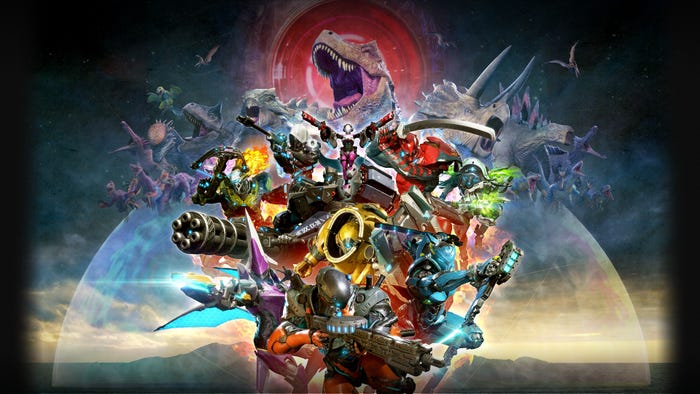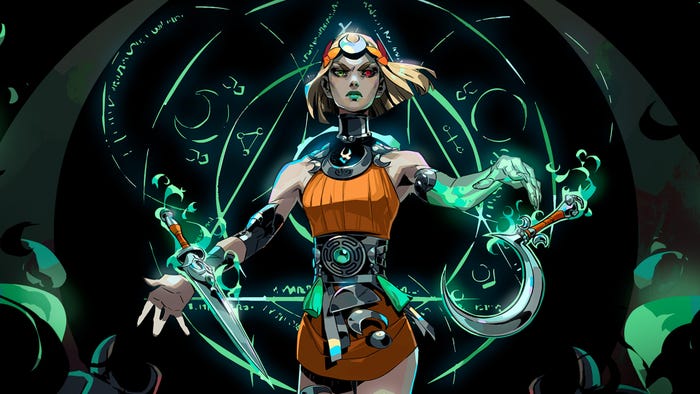
Featured Blog | This community-written post highlights the best of what the game industry has to offer. Read more like it on the Game Developer Blogs.
Two surprising years as a bootstrapping indie publisher
Two years ago we launched an independent games publishing label without any investors or major backing. Twenty four months, 11 games and some sleepless nights later, it seems like a good time to reflect upon and share the journey so far.

Two years ago we launched an independent games label based in Australia called Surprise Attack Games. At the time it felt like a huge and relatively new thing for someone to do, especially considering that we had no external investors and were approaching the whole thing in a very indie way.
As we celebrate our second birthday it seems like a good time to take a look back at that journey and share some of our experiences so far. Perhaps this will be useful for others looking to go down this path. Perhaps it may be interesting to developers to see a perspective from the publishing side. Maybe it will be none of those things. Let's find out.
Who the hell are we?
I guess I should probably start with a quick intro... Surprise Attack Games is an indie label based in Australia. We work with Australian developers but also with teams from all over the world. We take on the work of a publisher - sales, marketing, distribution, feedback on development, testing and business development - but our developers keep creative freedom and ownership of their IP. We don’t typically invest money into development because it would fundamentally change the power-balance in our favour and we are committed to our developers being as independent as possible.
We’ve launched 11 games so far with most of those on PC and a few on mobile/tablet. Our most successful game to date is Screencheat and we have a predisposition towards unusual or unique game ideas. For example, we have published a dystopian steampunk golf game and are about to launch an immersive hacking simulator. Next year we’ll release a virtual-reality game where the player is blind. We have a bunch of exciting games coming in the next six months (see the trailers breaking up this wall of text) and will start to release games on PS4 and Xbox One from the start of next year.
Besides the main Surprise Attack Games label we also help indie developers with digital distribution outside of Steam through something we call Bigger Boat, and we have been exploring other areas such as helping western mobile devs take their games into Asian markets.
Ok, with that out of the way let’s go back to where it all began…
Screencheat is a split screen shooter where everyone is invisible and players
have to look at each others screens to win. Available on PC, Mac and Linux now,
it will launch on Xbox One and PS4 in early 2016
A typically indie beginning
Although Surprise Attack Games was officially launched in July 2012, it actually began life two years earlier in August 2010. At the time I was working as the Marketing Director for THQ’s Australian development studios - Bluetongue and THQ Studio Australia. I’d been at THQ for seven years and held multiple roles including heading up the Asia Pacific marketing team before making the shift into the studio system. My job was essentially one of an embedded marketer inside the studio, working with the both the developers and the global publishing team in LA and acting as an ambassador between two very different worlds.
Six months into that role, both projects the studios were working on were cancelled as part of THQ’s slow descent into bankruptcy. Two hundred people were suddenly out of a job, including me.
I spent the next few weeks literally packing the Bluetongue studio into boxes and figuring out what to do next. I had options to move elsewhere within THQ but what I most wanted to do was to find a way to build a different kind of publisher, one that worked on an intimate rather than a huge scale and one that put developers at its heart. Like many of the suddenly out of work developers around me, I decided to go indie.
Dungeon League just launched into Early Access. It's a local multiplayer game condensing
the Dungeon Crawling genre into 10 minutes of competitive party game action.
Bootstrapping
I started Surprise Attack with what now seems like a staggering lack of understanding of the “proper” way to to start a business. I completely ignored anything to do with startup methodology or seeking investment and focused instead on working with developers to understand what was actually involved in independent game development and what they needed. I consulted with indie devs for free initially and then started charging after a few months. I also took on some work from larger companies that wanted help specifically in Australia and that helped me hire some staff and then attract some business partners.
The money earnt from consulting pretty much all went back into growing the business rather than paying ourselves as the business owners and this model has essentially been the way we’ve continued to operate. We work on marketing projects for other companies - mostly independent developers in the early years and now almost entirely larger gaming and tech companies - and then we invest the proceeds into the publishing label. This has meant that we’ve been able to grow to eight full time staff with a relatively small amount of external investment and has given us a lot of independence.
This is pretty similar to the way a lot of independent development studios work - work for hire to pay the bills and invest the proceeds into taking the risks with original IP. The upsides are that you don’t have to spend time pitching to investors, you have more strategic freedom and if the risks turn out to fail, you have the other revenue stream coming in so it’s not game over. The downside is that you’re reliant on the work for hire revenue and it’s really important to make that work as stable as possible. Sometimes you just can’t afford to do the things you’d like to like attending a trade show because the cash flow isn’t there.
We’re at a point now where seeking external investment is starting to make sense as an accelerator to what we’re doing but looking back I’m pleased we went down the bootstrapping path so far. It took some time to get it working as efficiently as it is now - with four full time people on the work for hire side of the business and most of the revenue coming from retained clients and long term projects - and it certainly would have been nice to have come into this with a stack of investor cash to just pursue the label single-mindedly, but it’s taught us to value every dollar we spend on the label and given us time to experiment and feel our way through an ever-changing landscape.
Hacknet is an immersive hacking simulator using real UNIX terminal commands.
It launches on PC on August 12.
An indie machine is still a hungry machine
One of the things I came to realise about AAA publishing when I was at THQ was just how big a machine a publisher is and just how hungry that machine is. THQ had over 2,000 people at one time and every month those people had to be paid along with a stack of other costs. A simple reality of any business is that you need to bring in revenue to pay for those costs and for a publisher that means you have to be launching games.
A big AAA publishing machine of all those people working across sales, marketing, operations, support, QA and so on has to be fed with work or the machine becomes extremely inefficient and wasteful. This leads to decisions about game launch dates, greenlighting products and so on being affected by the need to feed the beast as much as what is best in the long term.
At Surprise Attack we’re operating on a much smaller scale with just four people on the publishing label. This does give us much more freedom than a big company but we still have the same fundamental issue to deal with.
Some of our biggest challenges as a publishing label have been related to this. We had a pretty dreadful first year commercially when almost all of the games we had signed were delayed substantially or cancelled in some cases. It’s not been uncommon for games to be six months away from launch when we signed them but then to take 18 months or more to release. Even small delays of a few weeks can cause challenges if it means we have a quiet month followed by lots of releases close together. Longer delays can cause us to lose momentum on a game after a lot of work and cash has gone into the marketing based on the expected timeline.
Delays and issues such as developers having to get a day job to pay their bills or teams imploding are part of the territory in working with indies so we see it as our job to try to insulate ourselves from the impact as much as possible and to be able to stay true to our philosophy of putting the developer first.
Having an additional source of income from the work for hire side of the business has been a big factor in this as has our distribution label, Bigger Boat. We’ve also learnt to keep the team lean and recently shrunk the number of risks we were taking by focusing on fewer things than we had been.
Ultimately, for anyone serious about going into indie publishing, this unpredictability of development cycles and the need to have a core team in place in the meantime is something you’re going to have to both accept and find ways to deal with. An indie machine is still a hungry machine and you can burn a lot of cash if you’re not careful.
Blind is a narrative driven psychological thriller for virtual reality where the player
is blind and must explore their surroundings using echolocation.
It will launch for PC and PS4 in early 2016.
A hit-driven business is built on the shoulders of misses
Another unexpected discovery for me has been the double-edged sword of working so closely and on such a personal level with developers.
The human aspect of working with independent developer was one of my primary motivations for wanting to work in this space rather than where I had been in AAA. Seeing the difference up close that we can make when working with tiny teams - quite often a solo developer working on their game in their spare time - is incredibly rewarding. However, the inverse is also true. When a game fails you see the impact on the developer close up and there is an incredible sense of responsibility for that situation.
And of course indie games do fail, in fact the majority of them fail. This is the reality of democratised development - entry is easy but success is not. In a hit-driven business such as entertainment, there are hundreds of misses for every hit and there is no formula that guarantees success.
A publisher is not a silver bullet in this competitive market and this is really important for developers to understand. The fundamental model of a publisher is to spread its bets - putting eggs into many baskets not just one. You try as hard as you can for every game to succeed but know that the likely outcome is that some will over-achieve, some will fall short and some will be just ok. If the wins cover the losses you succeed as a business.
On a personal level, this is pretty taxing. You share some credit for a game’s success but feel a lot more responsibility for their failure. There’s no easy way out of that. We can now be a lot more upfront about the risks involved and the commercial realities we’re seeing when we’re talking to developers about signing their games. We try not to pitch ourselves as something that the developer needs or a slam dunk that will definitely bring them success but as a travelling partner on their journey. We try to pick teams to work with where we can see we are going to really add value.
Space Sluggers: a wise-cracking space marine, an ice-cold sniper, a homicidal robot
and a chainsaw-wielding aristocrat travel back in time to save Earth from destruction
in a co-op roguelike planet crawler.
Where now?
Two years in and I’m still passionate about building Surprise Attack Games into the kind of publishing label that works hand in hand with developers and does for indie games what labels like Sub Pop, Chemikal Underground, 4AD and others did for indie music.
We’re a lot wiser about what that actually means, although it’s still a moving target and the market keeps changing. Two years ago when we launched, Steam Greenlight was still pretty new and neither Steam Early Access nor the Humble Store existed. The current generation of consoles were not yet launched, Twitch was only a year old. This year, roughly five times more games will launch on Steam as in 2013 and all the consoles have active independent development programs.
The core solutions a publisher used to provide were funding and distribution but this is not the role that we see for independent labels. We see our job as to improve the chances of success for a developer through our capabilities and to take on some of the burden of work, allowing the developer to bring their game into existence at a lower cost, reducing their risk. An independent label does this whilst keeping the developer in charge of the creative decisions and giving them the lion’s share of the revenue from the game as well as ownership of the IP.
Over time we’re continually getting better at this. WIth every new release we build more connections in the media, stronger relationships with stores, platforms and other stakeholders. Knowledge learnt from one game benefits the others, systems become more efficient and effective. We’re building a fanbase that likes the kind of games we’re publishing. I’m not sure there will ever be a time when we won’t be a little rough around the edges but then that’s part of being indie ourselves.
As the market gets more crowded - as is inevitable - I think there’s increasing benefit to there being successful independent publishing labels alongside self-published indies and the big publishers. I believe we can play a crucial role in helping lift up new and small developers in particular - those who weren’t part of the first wave of successful indies that had hits in less crowded times. We can help overcome some of the obstacles faced by developers that aren’t based in the US or Western Europe be that a language barrier or simply distance to the key markets. A successful independent publishing sector can also advocate for independent developers and invest into local development scenes the way indie record labels helped their local music scenes.
Devolver is the poster-child for the value that independent labels can bring of course but there is plenty of room for others and we certainly welcome all the other labels that have been launching in the last couple of years. Inspired by the way indie devs see each other as fellow travellers rather than competitors, that’s the attitude we take to other indie labels and I hope something in this article might help those on a similar journey.
Two years in it has been an incredibly tough and challenging ride but we’ve survived, stronger for it, and I’m excited to discover what the future holds.
About the Author(s)
You May Also Like













